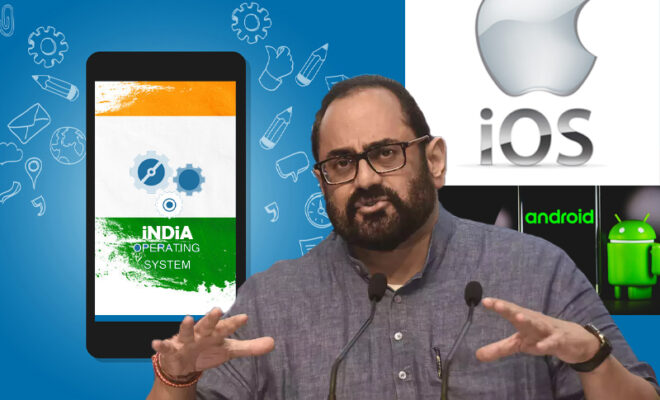IndOS: Govt To Develop Indian OS To Control Android & iOS Monopoly

Recently CCI had to fine Google for misusing its dominance on mobile phones. iOS may do the same in future. Thus the Indian govt is planning to bring its own OS.
In order to compete with Apple’s iOS and Google’s Android in the mobile operating system industry, the Indian government is apparently working on a new project named “IndOs,” an indigenous mobile operating system.
“One of the world’s biggest marketplaces for mobile devices is India. A senior government official was quoted by Business Standard as saying, “Our goal is to develop a secure Indian mobile operating system that might also generate options and competition for Android’s domination in the Indian market and a lower portion of iOS.
According to the Business Standard report, the decision to construct IndOS is a big one. It happens at a time when Google is under investigation in the nation and the Competition Commission of India (CCI) has already levied a punishment for what is said to be abuse of its dominant position through the Android Play Store policy.
According to a Reuters story, the US-based technology company recently claimed before the Supreme Court that an antitrust decision requiring the corporation to alter how it markets the Android platform is the reason why Google’s ecosystem is about to stagnate in India.
Keep Reading
In October, the Competition Commission of India (CCI) fined Alphabet Inc.-owned Google $161 million for abusing its dominant position in Android, the operating system used by 97% of Indian smartphones, and requested that it modify the limitations placed on smartphone manufacturers with regard to pre-installing apps.
Google has previously stated that the CCI ruling will compel it to alter its long-standing business model, but its Indian Supreme Court petition quantifies the impact and describes the adjustments the company will have to make.
According to the article, the US-based technology business will have to change its current agreements with more than 1,100 device makers and thousands of app developers, as well as create new license agreements.



